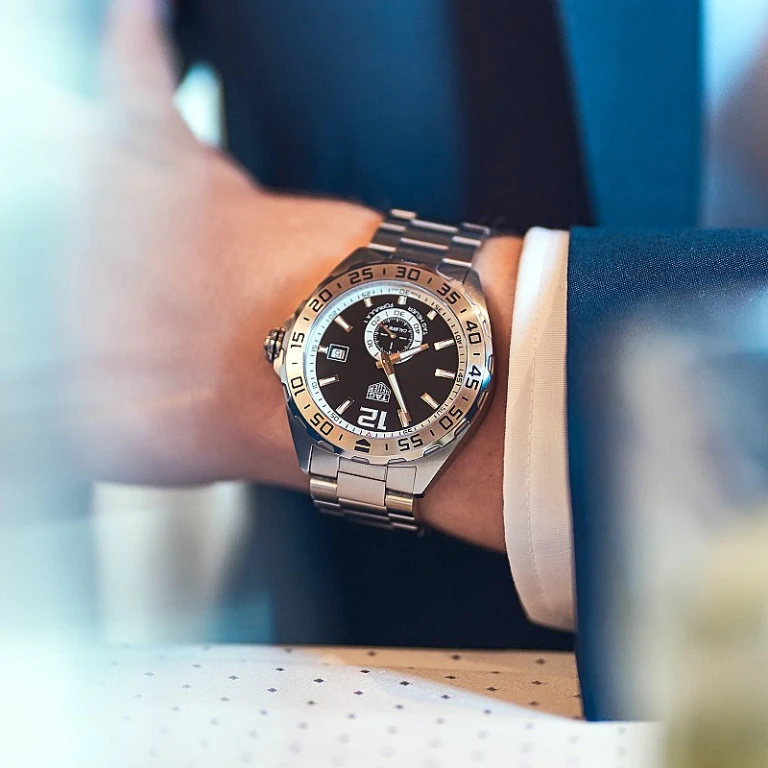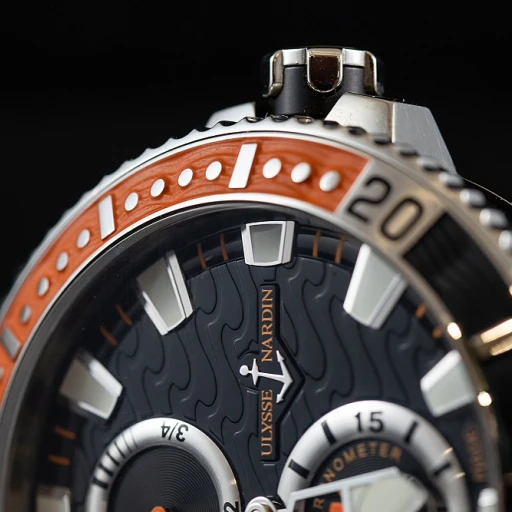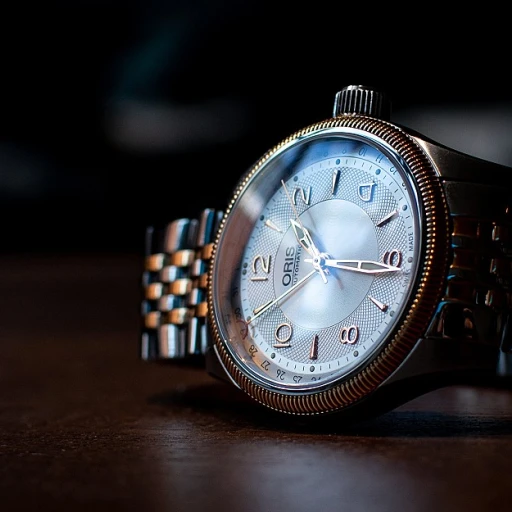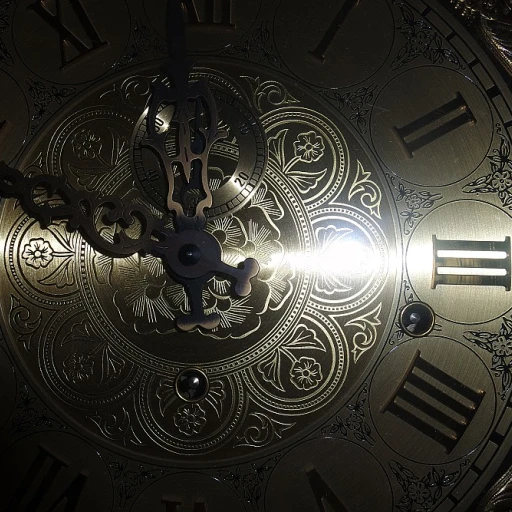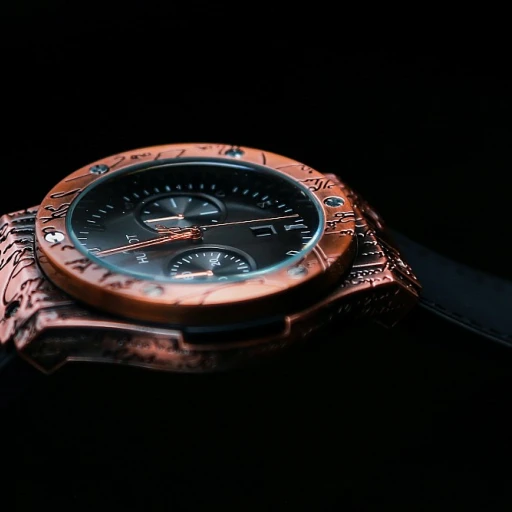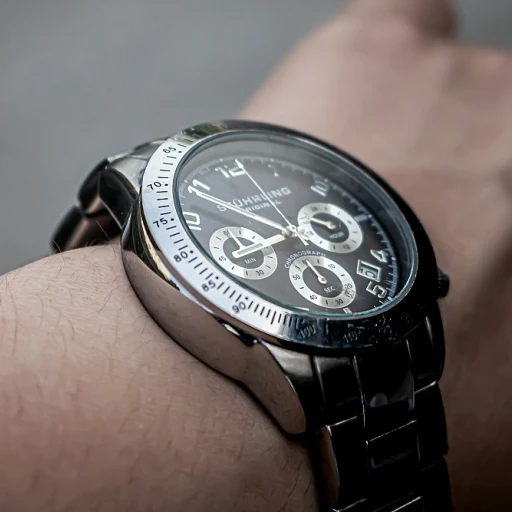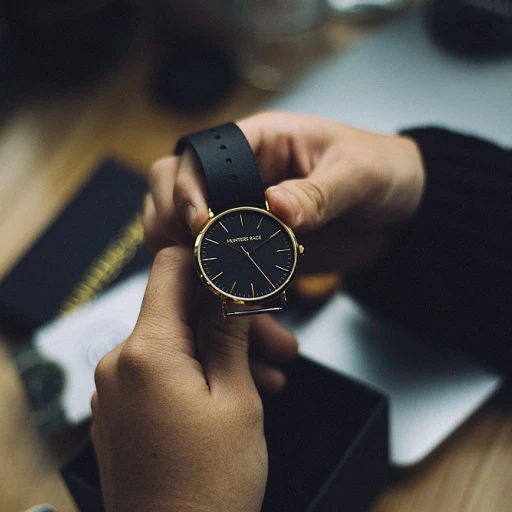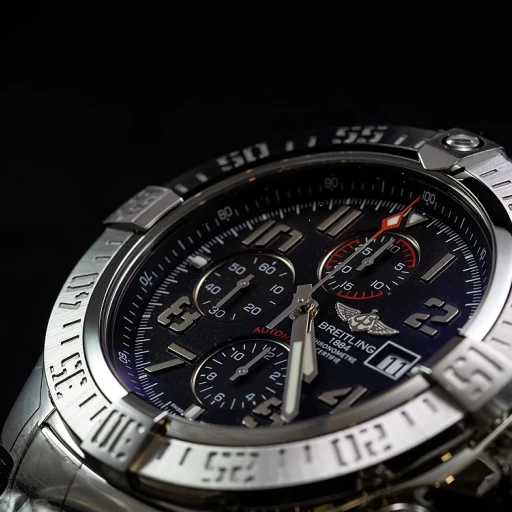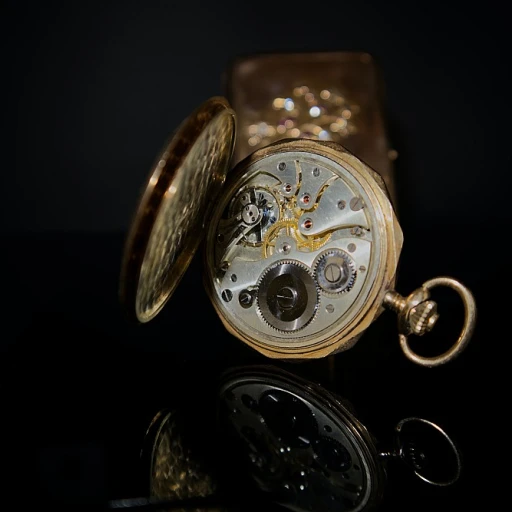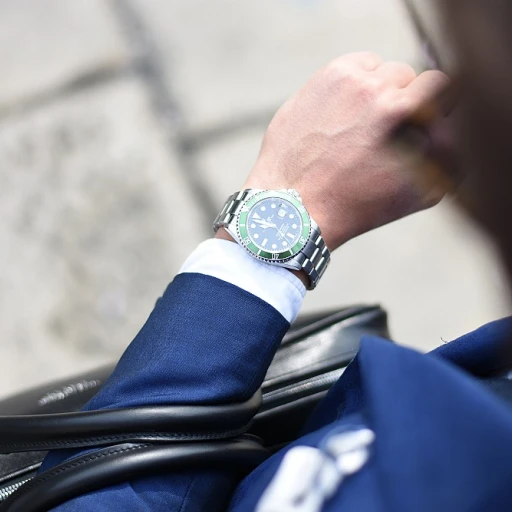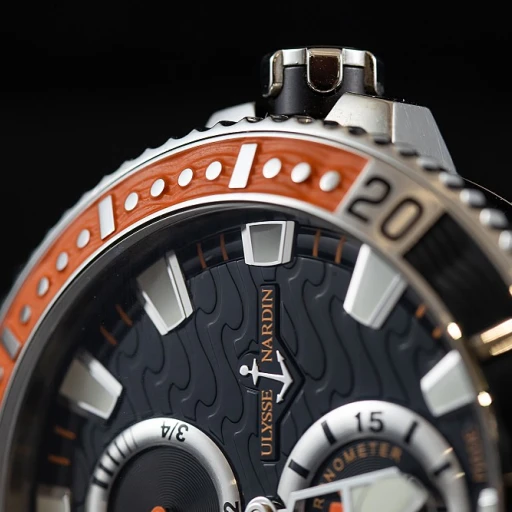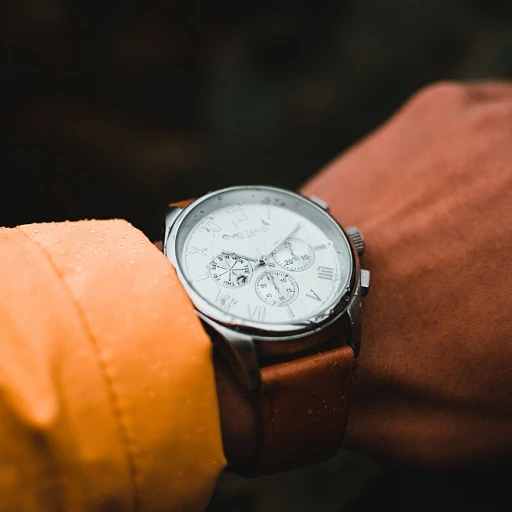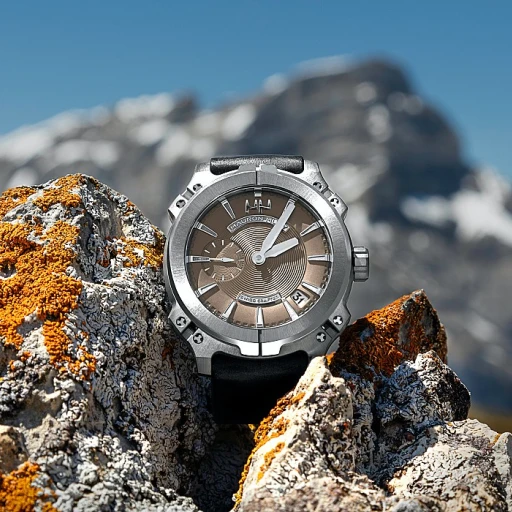The Importance of Authenticity in Luxury Watches
The Significance of Genuine Timepieces in the Realm of Luxury
In the world of horology, authenticity stands as a paramount pillar of the luxury watch sector. As collectors and enthusiasts know all too well, a genuine timepiece is more than just a testament to precision engineering; it is a narrative of craftsmanship, tradition, and exclusivity. This recognition by discerning consumers underscores why authentication in luxury watches is not merely a formality but an essential assurance of quality and investment.
Luxury watches command hefty prices, often justified by their exceptional design, exquisite materials, and limited availability. However, this allure also attracts a parallel market of counterfeit items which threatens the integrity of the luxury watch industry. Herein lies the critical nature of authentication—it's not just about verifying the legitimacy of a watch; it's about preserving the alchemy of luxury itself.
The benefits of authenticity stretch far beyond peace of mind. Authentic luxury watches hold more significant long-term value and appreciation compared to their counterfeit counterparts. When a buyer invests in a genuine piece, they are also gaining a piece of its storied heritage, craftsmanship lineage, and the prestige associated with the brand name.
As you delve deeper into the mechanics of how certification works and the influential figures in the authentication space, it becomes evident that the landscape of luxury watches is underpinned by an intricate network of protocols designed to safeguard authenticity. Furthermore, it's fascinating to observe how digital advancements are paving the way for more innovative approaches in certification practices, ensuring the legacy of authenticated luxury continues to shine brightly.
For avid enthusiasts exploring pioneering innovations within the luxury watch universe, brands like
Hublot stand at the forefront, seamlessly weaving tradition with modernity. Their practices not only highlight a commitment to authenticity but also demonstrate how brand integrity is maintained amidst evolving client expectations.
By understanding the critical role authenticity plays, we can better appreciate how the meticulous efforts of certification processes contribute to the enduring allure and value of luxury watches.
How Watch Certification Works
Understanding the Certification Process
In the intricate world of luxury watches, the certification process serves as a pivotal mechanism to confirm the authenticity of timepieces. Given the high stakes involved, it's no wonder that luxury watch brands have devised rigorous procedures to uphold their reputations. This system not only reassures buyers of the genuine nature of their purchases but also protects the brand's integrity from counterfeiters who attempt to imitate these masterpieces.
Luxury watch certification often begins with a detailed inspection by experts who meticulously assess each component of the watch. These professionals evaluate the materials used, the intricacies of the movement, and even the slight nuances that might escape the untrained eye. The goal is simple: verify that every element aligns with the brand's standards and that the watch is authentic in every respect.
To comprehend the complexities of this process, one can learn from the detailed mechanism of watch movements themselves, a topic explored in depth
here. The challenges lie not just in identifying counterfeits but also in ensuring that every genuine article is handled with the care it deserves.
A Layered Safeguard: Documentation and Certificates
Watch certification isn't solely about the physical attributes of the watch; it's also deeply intertwined with documentation. Certificates of authenticity play a crucial role, acting as official attestations that affirm the watch's origin and its journey from creator to owner. Such documents often include detailed descriptions, serial numbers, and seals or signatures from the brand or a renowned certification body, adding another layer of legitimacy to the purchase.
For seasoned collectors and first-time buyers alike, these certificates serve as the bridge between trust and transaction. They provide the necessary assurance and instill confidence in the buyer about the investment being made. Moreover, in the vast and sometimes murky waters of luxury watch resale, having comprehensive documentation can significantly add to a watch's value, further underscoring the importance of obtaining and keeping these papers secure.
Through embracing a comprehensive certification process, luxury watch brands not only safeguard their legacy but also assure their patrons of the timeless value of their purchase.
The Role of eBay in Watch Authentication
The Impact of eBay on Authenticity Verification
In the world of luxury watches, where authenticity is paramount, eBay has carved out a significant role as a mediator of trust between buyers and sellers. Its influence is notably felt in the vast marketplace it operates, catering to both casual watch enthusiasts and seasoned collectors. With the rise of counterfeits and the increasing complexity of ensuring genuine timepieces, eBay has introduced an authentication program aimed at securing buyer confidence and integrity in transactions.
For many collectors, purchasing a luxury watch through an online platform can be fraught with anxiety over authenticity. However, eBay’s authentication process serves as a robust barrier against deception, ensuring that listed watches undergo a meticulous examination. The program collaborates with leading industry experts, guaranteeing that each timepiece is thoroughly inspected for originality and quality before it reaches the buyer. This initiative aligns with the broader practices of watch certification discussed in this
article, highlighting a shared commitment to upholding standards in the luxury watch market.
What sets eBay apart is not only its commitment to verifying individual transactions but also its influence in shaping the landscape of online watch selling. By offering a platform where authentication is prioritized, it fosters a sense of trust that many buyers seek in such high-investment purchases. This dynamic plays a crucial role in gathering a loyal buyer base that values both transparency and security.
Additionally, eBay's efforts reflect wider trends noted in future advancements in digital technology and authentication, supporting a seamless bridge between traditional watches' luxurious allure and the innovative methodologies ensuring their genuine status. For anyone navigating the intricate world of luxury timepieces, this platform's commitment to authenticity offers reassurance and confidence, making it a crucial player in the evolving watch market.
Meet the Players: Key Brands and Their Certification Practices
Leading Brands and Their Unique Certification Approaches
In the world of luxury watches, authenticity is not just a hallmark of quality but a promise of heritage and craftsmanship. As we delve deeper into the intricate processes of watch certification, it's essential to recognize the key players who have set the gold standard in this realm. Each brand has its own distinct approach, reflecting its legacy and commitment to excellence.
Rolex, a name synonymous with precision and prestige, employs a rigorous certification process known as the Superlative Chronometer certification. This involves extensive testing not only by the Swiss Official Chronometer Testing Institute (COSC) but also through their in-house trials, ensuring each timepiece meets their stringent standards. This dual-layered certification is a testament to their dedication to delivering impeccable quality.
Patek Philippe, another titan in the luxury watch industry, takes a different route with its Patek Philippe Seal. This certification goes beyond mere accuracy, encompassing the entire watchmaking process—from the aesthetic finesse of the design to the mechanical prowess of the movement. This holistic approach ensures that every Patek Philippe watch is a masterpiece in its own right.
Omega, renowned for its innovation, has introduced the Master Chronometer certification. This certification, developed in partnership with the Swiss Federal Institute of Metrology (METAS), focuses on resistance to magnetic fields, precision, and overall performance. It represents Omega's commitment to pushing the boundaries of watchmaking technology.
These brands, among others, play a crucial role in shaping the standards of watch certification. As discussed earlier, the importance of authenticity in luxury watches cannot be overstated. The meticulous processes employed by these brands not only safeguard their reputation but also assure buyers of the genuine value of their investment.
Understanding these certification practices provides valuable insight into the buyer-seller relationship. It empowers buyers to make informed decisions, ensuring they acquire timepieces that truly reflect the artistry and authenticity they seek.
Understanding the Buyer-Seller Relationship
Navigating the Buyer-Seller Connection
In the world of luxury watches, the buyer-seller relationship is a delicate dance, where trust and assurance play pivotal roles. Essential to this interaction is the confidence provided by robust watch certification and authentication processes. As we delved into in our previous sections, the credibility of certification can significantly impact a buyer's decision.
Establishing trust begins with the seller's transparency about the watch's history and authenticity. This transparency is further reinforced by the usage of reputable certification bodies and third-party authenticators. When sellers back their products with verifiable documentation from trusted sources, they provide buyers with peace of mind, mitigating the risk of acquiring counterfeit or misrepresented timepieces.
Communication is another cornerstone. Buyers benefit greatly when sellers are open and willing to answer questions, providing detailed information about the watch's origin, condition, and accompanying paperwork. This attentive interaction not only builds trust but also helps in forging a lasting relationship, which is beneficial for both parties in future transactions.
Additionally, the digital age has introduced platforms like eBay that have taken a keen interest in bolstering confidence through authentication programs. This addresses a common barrier in online luxury watch sales—the apprehension of authenticity without physical inspection. By employing expert authenticators, these platforms are enhancing trust and security, thus influencing buyer behavior positively.
The buyer-seller relationship in the luxury watch industry is continuously evolving. As we explore future trends, with technology aiding in new forms of authenticity checks, maintaining a successful relationship between buyers and sellers will only become more nuanced and vital for ensuring genuine luxury.
Future Trends: Technology and Authenticity
Technology's Influence on Authenticity in Luxury Watches
In the ever-evolving world of luxury watches, technological advancements continue to reshape the landscape of authentication, bringing novel solutions that enhance the precision and efficiency of the process. As we look to the future, it's worthwhile to consider how technology is set to transform the realm of watch certification and authenticity.
One of the most significant technological breakthroughs is the integration of blockchain technology into the watch industry. Blockchain offers a tamper-proof digital ledger, allowing for secure recording of each watch's history—from production to sale. This ensures that every transaction and change of ownership is documented, providing buyers with indisputable proof of authenticity. This type of transparent record keeping could soon become a standard practice among high-end brands, further reinforcing the integrity of the luxury market.
Artificial Intelligence (AI) is another innovation being harnessed to enhance watch authentication processes. With its ability to analyze vast quantities of data quickly and accurately, AI systems can identify even the slightest anomalies or counterfeit signals that might elude human evaluators. By improving the accuracy of authentication, AI enables swifter and more reliable validation, building trust amongst buyers and sellers.
Moreover, advancements in mobile technology are making the authentication process more accessible than ever before. Applications tailored for luxury watch collectors offer real-time authentication services at their fingertips, utilizing high-resolution image capturing and AI-driven analysis. This instant verification facility not only boosts buyer confidence but also fortifies the buyer-seller relationship by ensuring transparency and reliability in transactions.
Looking forward, smart technology integrations such as Radio Frequency Identification (RFID) and Near Field Communication (NFC) tags are poised to play a pivotal role. These technologies allow users to access detailed information about a watch's origin, journey, and certifications with a simple tap of their smartphone, marrying convenience with cutting-edge authenticity solutions.
As the luxury watch industry continues to embrace these technological advancements, the future of watch certification and authenticity is bound to be more secure, transparent, and user-friendly. Innovation is at the heart of this transformation, promising a new era where counterfeiting becomes increasingly difficult and the value of genuine luxury remains steadfastly protected.
